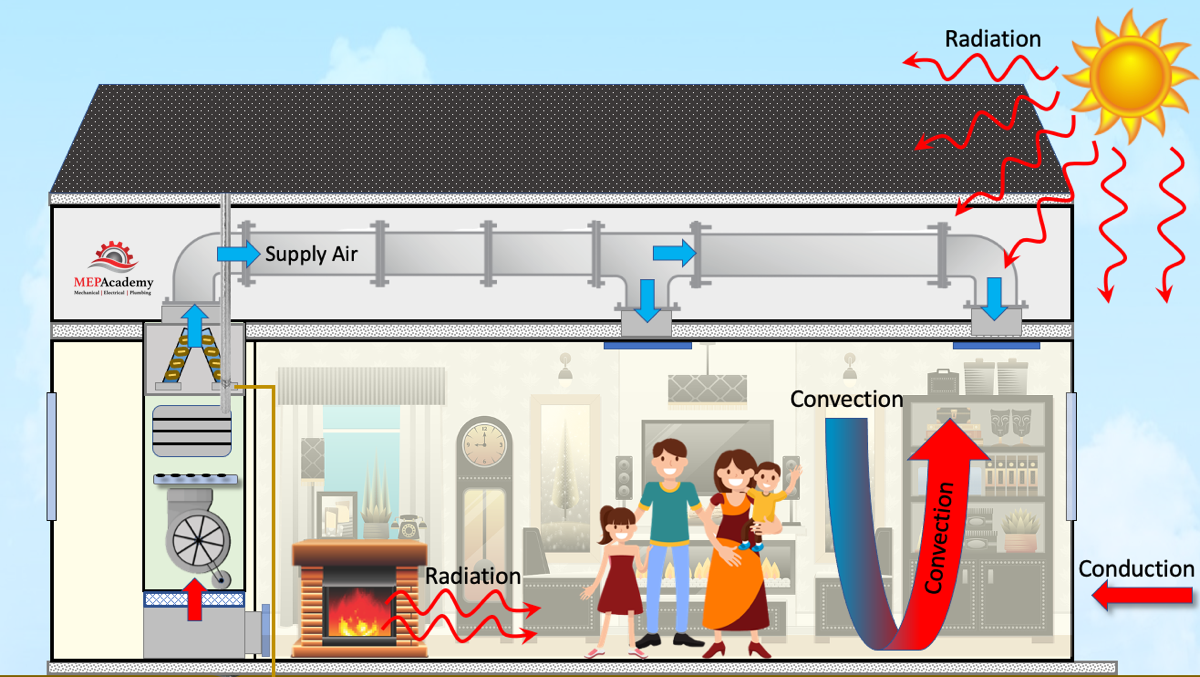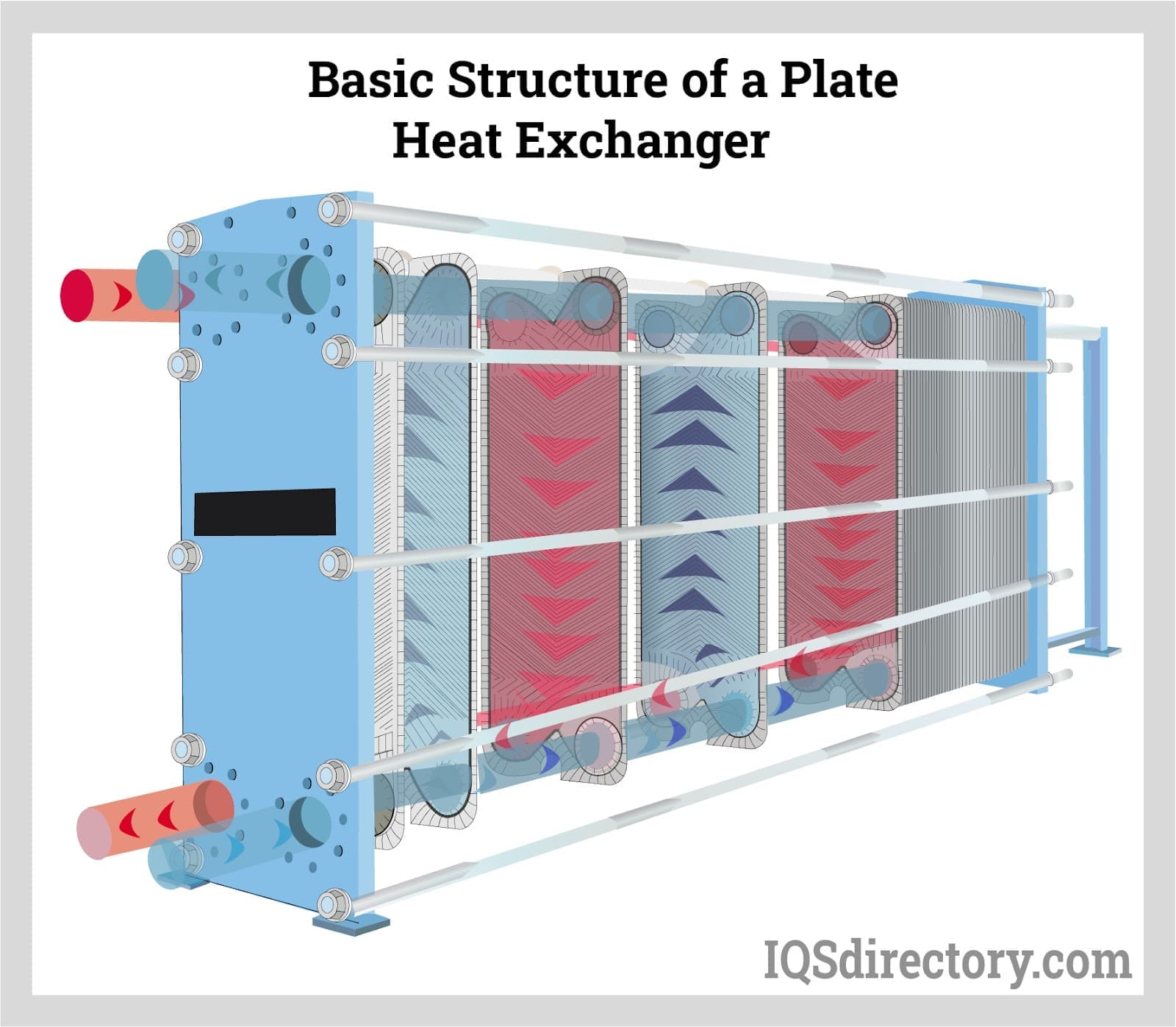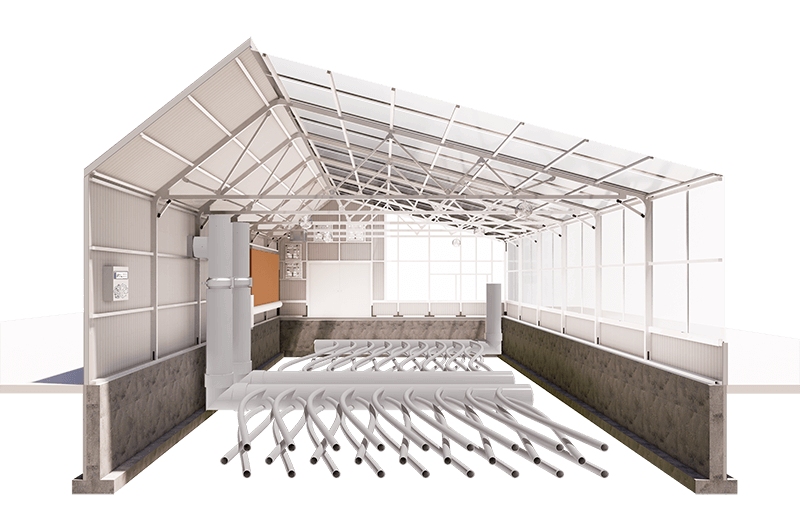DVS Heat Transfer Systems: A Definitive Guide to Smarter IoT Integration
Wiki Article
The Duty of Heat Transfer Equipments in Sustainable Power Solutions for the Future
Heat transfer systems are necessary in the mission for sustainable energy services. They maximize thermal power monitoring, boosting the performance of eco-friendly technologies. By employing mechanisms like radiation, convection, and conduction, these systems decrease power losses. Their function in solar thermal and geothermal applications is particularly considerable. As innovations arise, the potential for more improvements elevates vital inquiries regarding future energy approaches. What developments will form the landscape of lasting energy?Comprehending Heat Transfer Equipments

The Significance of Thermal Power Management
Efficient thermal energy monitoring is crucial for optimizing energy performance and reducing waste in different systems. By controling temperature level and maximizing Heat transfer procedures, organizations can considerably lower energy consumption and functional costs. Reliable monitoring includes the execution of sophisticated modern technologies and practices that check and regulate thermal conditions within systems, making certain that power sources are made use of efficiently. Furthermore, proper thermal energy monitoring adds to minimizing greenhouse gas exhausts, straightening with global sustainability objectives. It additionally boosts system dependability and performance, causing boosted item top quality and longer tools lifespan. Ultimately, prioritizing thermal energy management is a crucial action in the direction of developing a lot more lasting power options and promoting a liable strategy to power usage in property and commercial contexts.Applications of Heat Transfer in Renewable Power
While numerous renewable resource sources assure sustainability, the effective application of Heat transfer plays an important duty in their effectiveness. In wind energy systems, Heat transfer is used for wind turbine element cooling, boosting efficiency and long life. Geothermal power relies upon effective Heat exchange in between the earth's subsurface and the liquid flowing in the system, maximizing power extraction. Biomass power processes also take advantage of Heat transfer, as it aids in converting natural materials right into functional fuel via pyrolysis and gasification. Additionally, in hydropower, keeping optimal temperatures in reservoirs can enhance energy output. Each of these applications shows the critical significance of Heat transfer systems in enhancing renewable resource technologies, inevitably adding to a more lasting energy future.Enhancing Solar Thermal Power Effectiveness
As solar thermal power systems remain to progress, enhancing their performance has come to be necessary for making best use of energy output. Advancements in Heat transfer modern technologies, such as enhanced thermal storage space products and innovative Heat exchangers, play a substantial role in improving performance. By using advanced products that have remarkable thermal conductivity, systems can transfer and record Heat better. Additionally, integrating radar that adhere to the sun's path warranties that collectors get excellent solar exposure throughout the day. Making use of nanotechnology in solar absorbers can additionally enhance power absorption prices. Moreover, incorporating computerized control systems assists regulate temperature levels and handle energy circulation efficiently, bring about reduced losses and boosted overall system efficiency. These improvements lead the method for even more sustainable solar thermal power remedies in the future.Geothermal Home Heating: A Lasting Remedy
Geothermal heating offers a sensible option for lasting energy, providing considerable environmental advantages via reduced greenhouse gas emissions. Its effectiveness and cost-effectiveness make it an appealing alternative to typical heating unit. Difficulties related to application needs to be dealt with to maximize its potential influence.Environmental Benefits of Geothermal
Although conventional home heating methods add considerably to greenhouse gas discharges, geothermal home heating presents a compelling choice that reduces ecological influence. By utilizing the Planet's inner Heat, geothermal systems utilize an eco-friendly energy source, considerably reducing reliance on fossil fuels. This technique produces marginal carbon emissions, making it a cleaner choice for domestic and industrial heating. In addition, geothermal systems promote energy efficiency, as they need less power contrasted to standard heating unit. DVS Heat Transfer Systems. The use of geothermal power likewise aids in reducing air pollution, boosting neighborhood air high quality and public health and wellness. As a sustainable service, geothermal heating sustains climate adjustment reduction efforts, placing itself as an essential component in the change in the direction of a greener futurePerformance and Cost-Effectiveness
Just how does geothermal home heating measure up in regards to performance and cost-effectiveness contrasted to typical home heating systems? Geothermal home heating shows remarkable performance, often accomplishing a coefficient of performance (COP) of 3 to 5, meaning it produces 3 to five units of Heat for every single device of power taken in. This effectiveness translates right into reduced operating expense, specifically in regions with stable geothermal resources. Initial installation costs can be more than conventional systems; however, long-term financial savings on energy bills and minimized upkeep costs can balance out these in advance financial investments. Additionally, numerous federal governments incentivize geothermal systems with rebates and tax credit reports, improving their cost-effectiveness. Overall, geothermal heating emerges as a sustainable and financially practical alternative to more traditional home heating services.Execution Challenges and Solutions
Countless obstacles can hamper the official site extensive implementation of geothermal home heating systems, despite their clear advantages as a lasting energy service. High preliminary setup expenses often deter investors and property owners, making financing a substantial barrier. In addition, the geographical constraints of suitable geothermal sites restrict accessibility in specific areas. Neighborhood guidelines and allowing processes can additionally make complex task advancement, leading to hold-ups. Additionally, public awareness and understanding of geothermal systems stay low, impeding acceptance. To address these difficulties, targeted education projects can enhance open secret, while government incentives might reduce monetary worries. Collaborating with local authorities to streamline laws might facilitate smoother job authorizations, eventually advertising the fostering of geothermal heating as a viable, sustainable power alternative.Innovations in Heat Transfer Technologies
Advancements in Heat transfer innovations play a crucial function in enhancing energy performance and sustainability. Advanced Heat exchangers and phase change products are at the leading edge of these growths, supplying considerable enhancements in thermal management. These technologies not only maximize energy usage yet likewise add to lowering environmental impact in numerous applications.Advanced Heat Exchangers
Advanced Heat exchangers play an essential role in enhancing power efficiency throughout different applications in sustainable power solutions. These gadgets promote the transfer of Heat in between two or even more fluids, substantially minimizing energy intake in processes such as commercial heating, air conditioning, and power generation. Advancements in materials and design, such as making use of nanofluids and small setups, have led to enhanced thermal efficiency and minimized dimension demands. Additionally, innovations in digital surveillance and control systems enable maximized operation, additional raising effectiveness. By minimizing waste Heat and taking full advantage of energy recuperation, advanced Heat exchangers add to decrease carbon impacts and support the shift towards eco-friendly technologies. Their continued advancement is essential for achieving international energy sustainability goals.
Phase Modification Products
The combination of stage change materials (PCMs) right into Heat transfer modern technologies stands for a significant advancement in power management and efficiency. PCMs take in and release thermal energy throughout their stage adjustments, enabling effective temperature policy in building materials and energy systems. By keeping excess Heat throughout height periods and releasing it when demand increases, PCMs add to fill changing and power preservation - DVS Heat Transfer Systems. This capacity enhances the performance of renewable power systems, specifically in solar thermal applications. In addition, PCMs can boost the thermal comfort of interior atmospheres, minimizing dependence on traditional heating and cooling down approaches. As developments in PCM formulations proceed to arise, their function in lasting energy options is positioned to expand, go to this site supplying appealing opportunities for future study and application
Future Leads for Heat Transfer in Lasting Power
As the need for sustainable power services remains to rise, the function of Heat transfer systems is coming to be increasingly important in forming future technologies. Developments in products and layouts are expected to improve performance in Heat transfer, reducing energy losses in different applications. The combination of sophisticated thermal storage space systems, such as phase modification products and thermochemical storage, will make it possible for better management of energy sources. Research right into nanofluids and biomimetic Heat exchangers may additionally maximize thermal performance. The fostering of wise modern technologies will certainly enable for real-time tracking and adaptive control of Heat transfer processes. These improvements are poised to substantially add to the general efficiency and sustainability of energy systems, paving the means for a more energy-efficient future.Regularly Asked Concerns
Just How Can People Implement Heat Transfer Systems at Home?

Individuals can execute Heat transfer systems in the house by setting up energy-efficient appliances, making use of glowing heating, and enhancing insulation. These measures improve energy performance, minimize costs, and advertise lasting methods in domestic environments.

What Are the Expenses Connected With Mounting Heat Transfer Equipments?
The costs related to installing Heat transfer systems vary extensively, generally including devices, installment labor, and maintenance. Factors such as system kind, home dimension, and regional regulations substantially influence the overall expenditure involved.Exist Federal Government Rewards for Heat Transfer System Installations?
Government rewards for Heat transfer system setups differ by region and can include tax credit ratings, grants, and discounts. These economic advantages aim to urge fostering, ultimately promoting energy effectiveness and reducing environmental effect within communities.Exactly How Do Heat Transfer Equipments Impact Power Expenses?
Heat transfer systems notably affect energy costs by enhancing power efficiency. By boosting the transfer of Heat, these systems reduce power usage, bring about lower energy costs and developing a more lasting method to power management.What Upkeep Is Needed for Heat Transfer Solutions?
Upkeep for Heat transfer systems includes routine evaluations, cleansing of parts, inspecting liquid degrees, guaranteeing correct insulation, and changing worn parts. These tasks assist keep efficiency, stop breakdowns, and extend the system's functional life-span.These systems help with the movement of thermal energy from one tool to an additional, making it possible for the transfer of Heat for use this link cooling, home heating, or power generation functions. Geothermal power depends on efficient Heat exchange between the planet's subsurface and the liquid circulating in the system, taking full advantage of energy extraction. In addition, geothermal systems advertise energy efficiency, as they require much less power compared to conventional home heating systems. Advanced Heat exchangers play an important duty in improving power effectiveness throughout numerous applications in sustainable power remedies. Heat transfer systems especially affect power expenses by enhancing energy effectiveness.
Report this wiki page